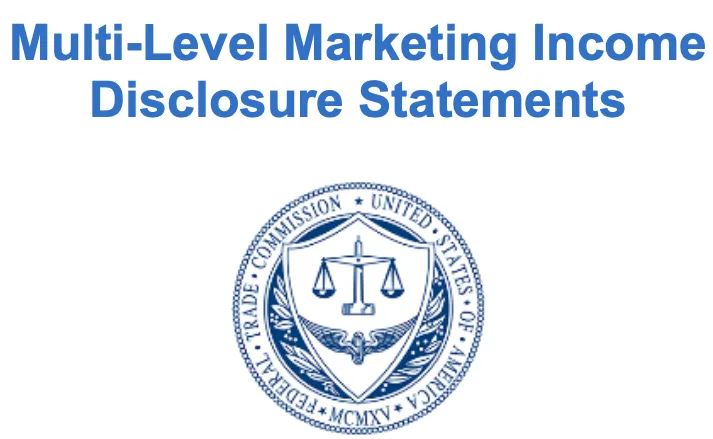_________________________________________________________________
This week (September 17th 2024)
'Tupperware' has filed for bankruptcy.
_________________________________________________________________
Tupperware: Embattled food container firm files for bankruptcy (bbc.com)
Tupperware Voluntarily Initiates Chapter 11 Proceedings (prnewswire.com)
_________________________________________________
Almost two years ago, Robert FitzPatrick published the article below.
__________________________________________________________________________
Extinction Alert: The Plight of Avon and Tupperware | Pyramid Scheme Alert
MLM is not and never was “direct selling” (door-to-door retailing). Mass merchandising, big box stores, mail-order and then the internet, among other societal changes killed off the old “direct selling” model generations ago. MLM promoters stole the revered old identity of “direct selling” to disguise the newly invented pyramid recruiting scheme, turning the salespeople into unwitting “customers” and recruiters.
As part of that disguise, MLMs frequently pointed to two long established and respected direct selling companies, Avon and Tupperware, as “proof” that MLM is “direct selling.” Both companies were members of the Direct Selling Association (DSA), which had been taken over almost entirely by Amway-type MLMs, as real direct sellers went out of business or closed sales operations (e.g., Fuller Brush, Encyclopedia Britannica).
Both were cultural icons, Avon for its “ladies” and Tupperware for its “parties.” In the distant past, both had differentiated products with real consumer demand. If someone argued that MLM was not direct selling but a pyramid scheme, MLMers would counter, “Are you calling Avon and Tupperware pyramid schemes?“
Walking Dinosaurs
The truth for both companies was very different from the MLM-version. In fact, Avon and Tupperware were vestiges of the pre-MLM – and mostly extinct – era of “direct selling”. They were walking dinosaurs. They still tried to base their businesses on their historical brands and on person-to-person retail sales to real customers, as all direct selling companies used to do.
Despite MLM’s false portrayal of Avon and Tupperware as “typical” MLM, the sharp distinction between them and the MLM “industry” burst into public view in 2013-14 when the two companies publicly quit the Direct Selling Association, charging ethics violations and DSA connections to pyramid schemes.
Avon’s Long Good-Bye

Avon had been a true door-to-door direct seller for decades before MLM was invented. But as the door-to-door model faded and “MLM” emerged as its counterfeit legacy, Avon began a long decline. In 2000, Avon shifted its focus from paying for retailing to “incentivizing” salespeople to recruit more salespeople and getting them to buy inventory, MLM-style. In 2009, during the Great Recession, Avon ran its most expensive ad in history, on television during the Super Bowl. The ad never mentioned any Avon products! It only solicited “salespeople.” Actual lipstick was replaced by a fake “income opportunity.” Still, global revenue dropped continuously over the next 10 years. Avon stock value fell from over $30 to just over $3.
Finally, Avon split off its faltering North American business and sold it to the Korean company, LG Household & Health Care. Avon claimed to have 250,000 sales representatives in North America. LG paid $125 million for the company, equivalent to just 500 bucks per salesperson. The remaining global business was later sold to the Brazilian MLM, Natura, which also owns the retailer, Body Shop. Though Avon global was much larger, its shareholders traded 3 shares of Avon for just one in Natura.
The Korean-owned segment in North America is now classic MLM, selling “health” supplements, make-up, jewelry, clothing, scented candles, even toothpaste, and, always, the proverbial MLM “income opportunity.”
On the Canadian Avon website, Avon advertises its “opportunity”, urging prospects in large bold black type:
“Think big. Sell Avon part-time, full-time, you decide how much! It’s your business, your way!” A disclosure (legally required in Canada, but not in the USA) appears midway down a long webpage in tiny, barely visible gray lettering: “The 2020 earnings of a typical Avon Leadership Representative was between $0 and $2,620 in commissions and bonuses.” That’s $0 to $50 a week, before subtracting all costs!
Avon quietly rejoined the Direct Selling Association, expressing no further public concerns about ethics or pyramid schemes. The Brazilian company, Natura, which took over Avon’s global business in 2020, has lost 66% of its stock value in the last year. The old “Avon” is now long gone.
Tupperware on the Brink

Tupperware was one of the first “party plan” companies, which are technically a subset of MLM, employing an “endless” recruiting chain, but still more rooted in retail transactions at “parties.” Tupperware used to have a popular brand with innovative, differentiated products. But, as true direct selling began to disappear, Tupperware went into decline. It added MLM-type “health and beauty” commodities to bolster recruiting appeal but recently stopped offering them. Its core product line of kitchen-related goods are generally no different from types now available in stores or online. A 10-months “Income disclosure” for Canada showed that half the “party planners” are classified “inactive”, earning less than $30 for the period on average. 94% of the “active” ones reportedly received about $12 a week on average, before expenses.
In the last 5 years, the stock value of Tupperware dropped 94%. This year, it began also selling its products in Target department stores. Its latest financials revealed significant losses and warned investors the company may violate loan agreements, setting off speculation Tupperware might declare bankruptcy.
The specious MLM-defense, claiming historical direct-selling icons, Avon and Tupperware, as proof that MLM really is “direct selling” is as extinct as those companies’ old business model.
Robert FitzPatrick (copyright 2022)


